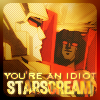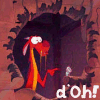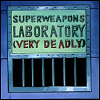
Today’s post is a continuation of On The Thing You Won’t Talk About Part I, from the makers of “things” and “talking.” I promised to talk about what makes me feel uncomfortable, so here it is.
For those closest to me, you know I’ve dealt with survival before in my own life. However, I don’t use this as a fuel for my work, because that’s not what I do to “put myself out there.” Instead, I tap into those tricky questions to tell a story that’s both mine and yours. Then, I tell another one. And another. And another. . .
I’m not going to consciously write about my personal relationships. In some ways, I have a photographer’s viewpoint; the stories I tell are mine and mine alone, sure, but it’s not like anyone else has taken pictures of birds, fruit, architecture, and people before. Rejection hurts, yes, but there’s always something to be learned from it, to apply for “next time” when you’ve missed your mark. I know when I fail before someone else believes it to be so, primarily because I have, with absolute certainty, a deeper understanding of those times when I don’t feel connected to my work. There are many ways to break that connection, and too much acceptance/tolerance is one of them.
Complacency, my friends, the slow trickle of acceptance that this is just the way the world works, this is just how things are and always will be, and there’s nothing you can do to change them – this is death to any writer and this I fear. When you become complacent, slowly, by inches, the wonder gets leeched out of your world and you no longer have a story to tell that you want to write – you pen tales out of obligation.
I am not saying that writing because you have to for income-related purposes is either a morally “bad” thing or something to be feared. That, my dear Readers, is poppycock. Everyone who’s ever written professionally knows that there are economic rules of scribing part-or-full time. What I’m saying, is that I feel that you have to protect and insulate and nourish the part of you that tells stories, either non-fiction (e.g. blogging) or of a fictional sort, so you can weather your ability to write regardless of circumstances beyond your control. And, of course, there are so many of them aren’t there? Besides our base emotions, which can infect our egos and force its way like a thorn into our hearts, there are other real-world concerns that can get in the way: money, opportunity, timing, perceived competition, etc. In other words, the act of writing should be the constant, not what you hope/want to get out of it.
We often lie to ourselves, masking in obscurity the hows and whens and whys we write, to justify our work so we can go through those ups and downs of the proverbial rollercoaster with grace and ease. (Even though, it is possible to fall from grace and stumble without any reassurance, whatsoever.) I’ve certainly participated in these lies. I’ve been privy to them, sadly, to argue with the voices in my head and also to witness them in others.
The terrifying truth my friends, is this: any writer can stop writing at any time. It is so, so, so real and it can (and does) happen, for a variety of reasons, in the blink of an eye. I’ve seen it over and over and over again – even with some who’ve completely given up, and who’ll never write again. You’ve seen it, too. While there are those that can and do imagine their lives would never be complete without writing, I feel that not writing is the eventuality that happens when complacency sets in, which leads to acceptance, or depression, or whatever. . . It’s a happenstance, a direct result, of not caring about oneself (e.g. one’s Muse or scribe).
So then, knowing that is one inevitability, one foregone conclusion, that perhaps it is easier to not write than it is to get the words out, and at the bottom of this justification lies the fact that this is “hard work” – especially if you haven’t gotten the movie/six figure book deal/etc. – what does that offer me? Comfort?
No. Discomfort. This is what makes me uncomfortable, that the easiest thing, more than anything in the world, is to simply give up Poe’s ghost – this is what fuels my work, because I do not want to quit. I have not quit. I will not quit. I will NEVER quit.
I don’t know what makes you squirm, but I hope you find that one thing you can’t talk about, and I hope you pin it to the wall and experience that emotion for all its worth, to keep w-r-i-t-i-n-g if that, truly and deeply, is really what you want to do. Because for me, not writing, this is the thing I fear the most.
- Mood: Anxious
Caffeinated Beverages Consumed: That moment of perfect caffeinated bliss.
Work-Out Minutes Logged Yesterday: Yesssss?!?!?! Are you guilt-tripping me, again?
In My Ears: Muwahahahaha!
Game Last Played: Dragon Age: Origins
Movie Last Viewed: MirrorMask
Latest Artistic Project: In progress!
Latest Release: “Fangs and Formaldehyde” from the New Hero anthology through Stone Skin Press



